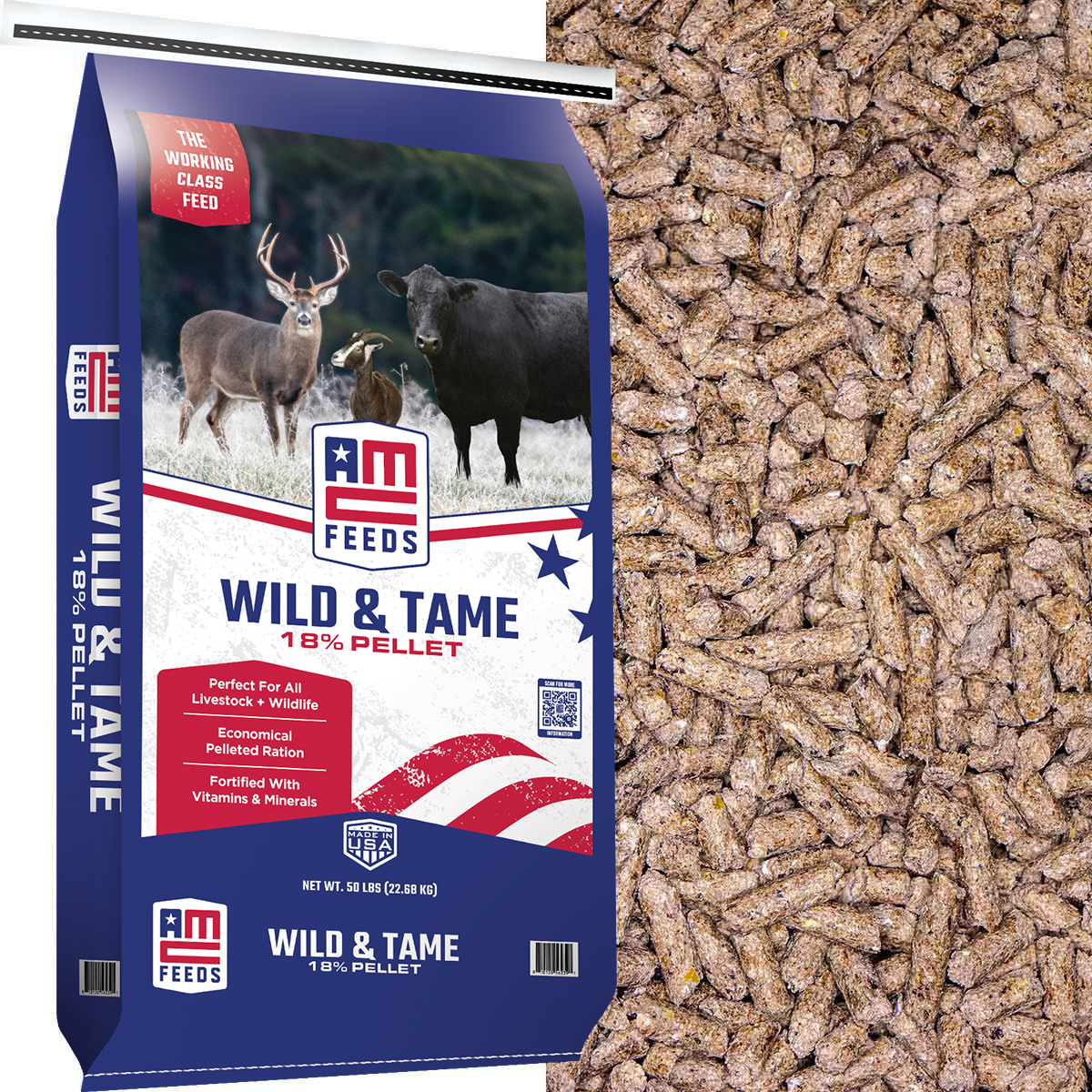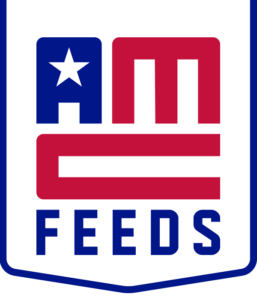
18% Wild & Tame
Introducing the Wild & Tame 18% Pellets by AMC Feeds, the versatile solution for all your livestock and wildlife feeding needs. With a balanced formulation boasting 18% protein, these pellets are crafted to support the health and vitality of various species. Fortified with essential vitamins and minerals, this feed ensures optimal nutrition for your animals. Not only does it deliver superior quality, but it also offers exceptional value, making it a highly economical choice for farmers and wildlife enthusiasts alike. Elevate the well-being of your animals with the Wild & Tame 18% Pellets, the go-to option for robust health and thriving livestock and wildlife.
Grain Products, Plant Protein Products, Processed Grain By – Products, Roughage Products, Molasses, Vitamin A Supplement, Vitamin D3 Supplement, Vitamin E Supplement, Calcium Carbonate, Salt Lignin Sulfonate, Magnesium Oxide, Zinc Oxide, Ethylenediamine Dihydroiodide, Cobalt Carbonate, Potassium Chloride.
| Crude Protein | Min 18.0% |
| Crude Fat | Min 2.50% |
| Crude Fiber | Max 20.0% |
| Calcium | Min 0.10% | Max 0.20% |
| Phosphorus | Min 0.50% |
| Salt | Min 0.02% | Max 0.10% |
| Potassium | Min 0.40% |
| Vitamin A | Min 4,000 IU/Lb |
Beef Cattle: Offer 1-1.5 pounds of pellets per 100 pounds of body weight daily to beef cattle grazing on pasture. Ensure a continuous supply of fresh, clean water.
Horses: Provide 1 pound of pellets per 100 pounds of body weight daily for adult horses as a maintenance ration. Divide this total amount into two or three feedings each day. Accompany with ample high-quality hay or pasture and unlimited access to fresh, clean water.
Sheep & Goats: Feed 1-2 pounds of pellets per 100 pounds of body weight. Adjust based on the animal’s life stage, activity level, and overall health. Ensure free access to clean, fresh water and high-quality forage.
Wildlife: Offer pellets at a rate of 1-2% of the animal’s body weight per day. Adjust as needed based on species, life stage, and habitat. Ensure access to clean, fresh water and natural forage sources. Monitor feeding areas to prevent overconsumption and maintain wildlife health.
Storage & Handling: Store feed in a dry, well-ventilated area away from rodents and insects to preserve quality. Do not use if the feed shows signs of mold or insect infestation, as this can be harmful or fatal to animals. Remember, feed is perishable and requires proper storage to maintain its nutritional value.
